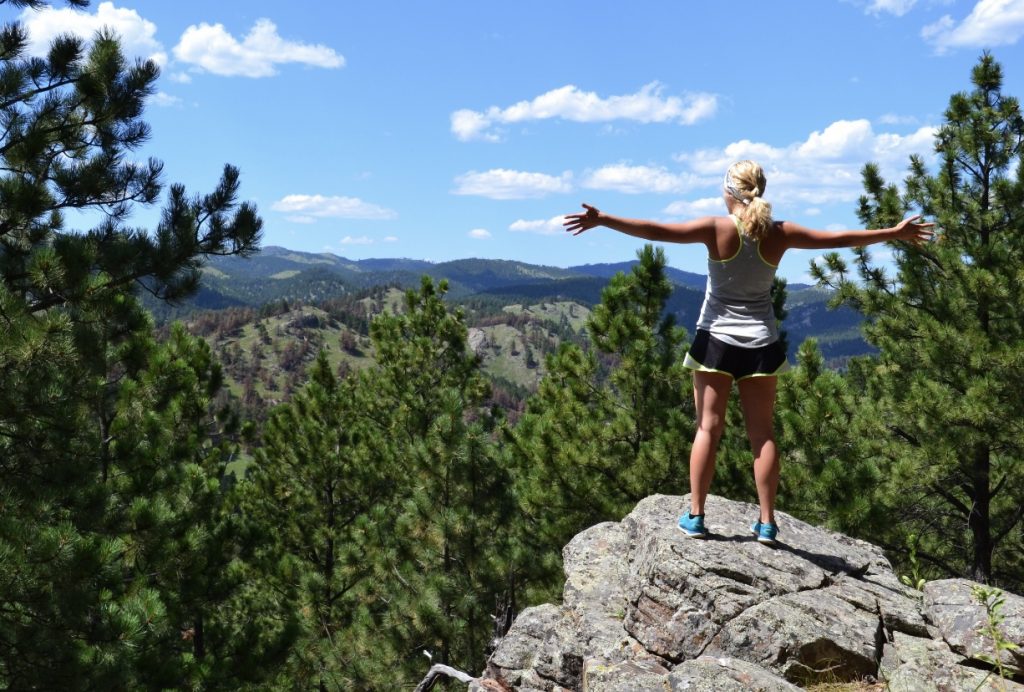Continuing our conversation from last week, I answer more of my own questions about sustainability. As a UW-Whitewater student who is majoring in Environmental Science, I share why I believe environmental education is so imperative.
Do you personally know of many people who have similar practices or a similar lifestyle as you?
I think because of my major and my job, I am surrounded by people who have similar outlooks, and therefore similar lifestyles. I know plenty of people who compost, use little to no plastic, eat vegan, and so on. But if I compare people I am directly surrounded by to our society as a whole, I see quite a few people who don’t live anything like me. I see people from high school posting stories of themselves with a new Starbucks drink every week, always with a single-use plastic cup. I see them showing off their new acrylic nails or their new clothes. I think a lot of us are made to be engulfed in consumerism and pop-culture because it’s something that’s been instilled in our society. I think we’re getting away from it, but what makes our impact comes down to “PAT” : population, affluence, and technology.
Even with technology that can help us have less of an impact, a lot of the impact comes from the population multiplied by the affluence. You might not think your one single-use Starbucks cup and your fast-fashion tendencies are making an impact, but they are when there are thousands doing the same thing. And that’s the thing: that’s just how many there are. Not to say that these tendencies make these people who do them bad. It’s just an observation of our mainstream culture. While there is a good portion of people who consciously try to live sustainably, I think there is an even bigger portion who don’t. It’s hopeful to know that our society is starting to make that shift though.
What current barriers do you think there are for individuals or society for not switching to more sustainable methods of living?
It’s how they were raised, finances, convince, connection to the land, and education. If a person grew up on different values and with a different lifestyle, it might be more difficult to make the switch. A lot of “eco-friendly” products are more expensive than the alternative. When people are given a cheaper option, they tend to go with that. It just makes sense, especially to the millions of people who have more personal worries to think of first before they can worry about making the sustainable choice.
It’s more convenient to throw your banana peel away and never see it again than to maintain a compost and put it in there. Just the same, it’s more convenient to use weed-killer on your sidewalk than to pull the weeds every time a new one comes through the cracks. But it’s long-term thinking: it’s more convenient to use and maintain a compost than to live with overflowing landfills; it’s more convenient to pull the weeds than to get cancer from the pesticide contamination in your water. In our society, there are so many other pressing current issues, that it’s hard to see the ones that seem more down the line. Many are not so far in the future, as we are seeing more and more environmental issues surface.
Lastly, I think connection to nature and education are crucial factors as well. Like Aldo Leopold wrote in Land Ethic, “When we see land as a community to which we belong, we may begin to use it with love and respect.” Possessing a connection to anything or anyone, tends to mean that we care for it. When we care for our environment is when we are likely to take action to protect it. Without the opportunity to connect with nature, is when there are barriers for people to want to live sustainably. Paired with the lack of education of environmental problems and solutions across the general population, we again find more barriers.
At a local or national level, what do you think we can do to make the most change?
As I mentioned above, making a cultural shift can help. If most individuals did their part to choose a sustainable lifestyle, that could help significantly. But in reality, not everyone is willing or in the financial or educated position to do so. When I mentioned that our impact is made up of population, affluence, and technology, it’s surprising how much affluence can be the most impactful of those. Those at the top 1%, who help fund our politicians at the same time that they fund big oil, have the power to make significant impact on our environment. How can we outweigh those in that much power? I think the answer to this is education because education can lead to action.
Did you know that just one hundred corporations are responsible for over seventy percent of our greenhouse gas emissions. These are the gases that cause climate change.
Becoming aware of a subject’s importance could potentially make people want change. Instead of people being told what to do, like “hey, don’t use that plastic straw,” show them why they shouldn’t. When people feel like others are pointing fingers at them and that they are getting blamed, they will probably be reluctant to make that change. If people are educated on why the plastic straw is bad and understand the countless reasons why they shouldn’t use it, then maybe they might be more apt not to use it. It’s the internal motivation not the external shame. When more of our population has an understanding of the issues and solutions at hand, I think that’s when we can not only want change, but demand change too. Voting with your money or voting at the polls can both be ways we can hold the power against those making the biggest negative impacts.

Leave a Reply